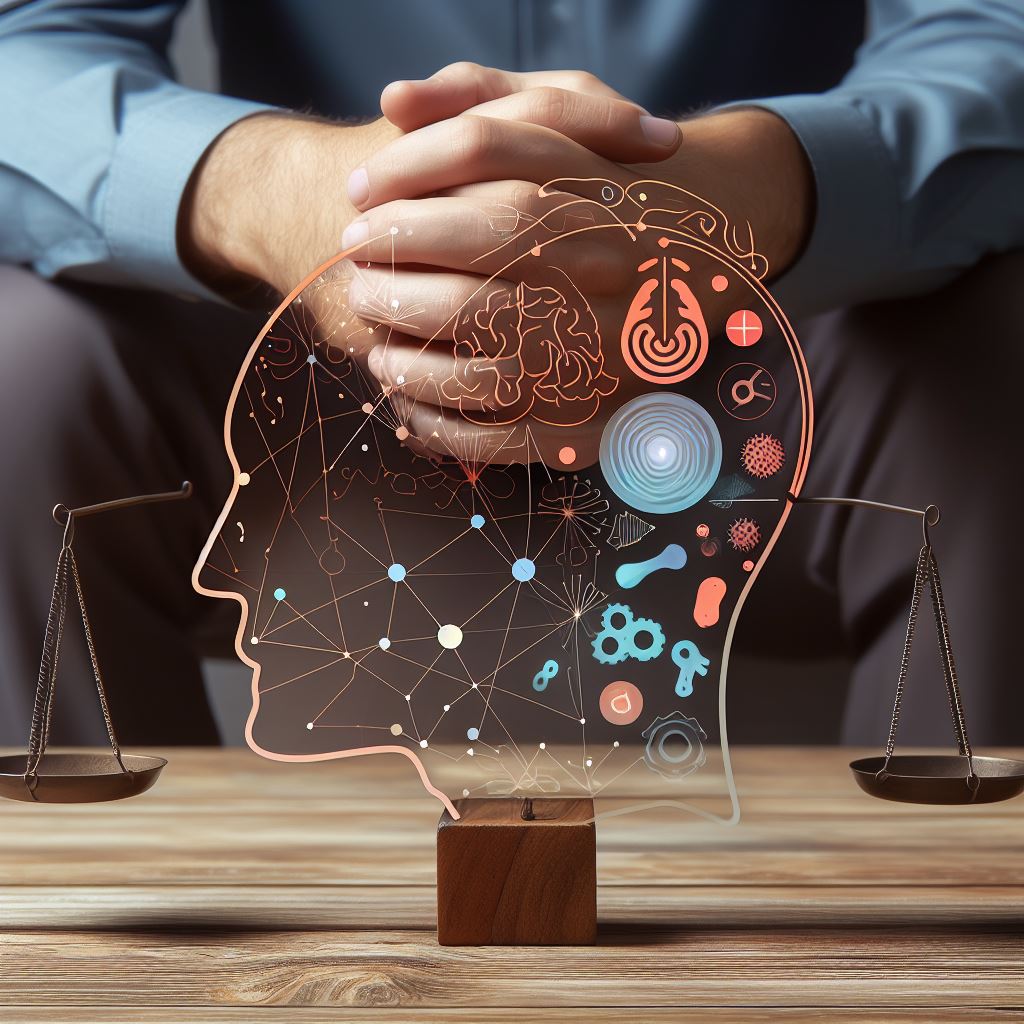People often confuse mental and psychological disorders, but they do not represent the same reality. Mental disorders impact brain function, causing challenges in perception, cognition, emotions, behavior, and social relationships.
Psychological disorders involve disruptions in development, adaptation, or well-being, often tied to biological, environmental, social, or personal factors.
Mental and psychological disorders impact mental balance, hindering coping abilities, self-esteem, and the capacity to thrive in life’s challenges.
1- What are the causes of mental and psychological disorders?
The causes of mental and psychological disorders are multiple and complex and vary according to individuals and situations.
– Genetic factors:
Schizophrenia, bipolar disorder, and autism have hereditary elements, heightening vulnerability for individuals with a familial background in such conditions.
– Biological factors:
– Environmental factors:
– Social factors:
– Personal factors:
Certain mental or psychological disorders may be linked to the person’s personality, emotions, beliefs, values, expectations, or experiences, which may make them more or less sensitive, resilient, or adaptable.
2- What are the effects of mental and psychological disorders on mental balance?
Mental and psychological disorders can have negative impacts on mental balance, impairing a person’s ability to feel well, adapt, achieve results, and interact with others.
Depending on the nature, severity and duration of the disturbances, these impacts may be more or less significant and visible. Among these impacts we can cite:
– Cognitive impacts:
Mental and psychological disorders can impact cognitive functions, including memory, attention, reasoning, judgment, creativity, and problem-solving.
– Emotional impacts:
Mental disorders trigger a range of negative emotions like sadness, anxiety, anger, guilt, shame, or hopelessness. Consequently, these intense emotions contribute to the onset of mood disorders, such as depression, anxiety, stress, or irritability.
– Behavioral impacts:
Mental and psychological disorders can result in alterations to a person’s habits, activities, hobbies, interests, or plans, fostering behavioral issues like agitation, aggressiveness, impulsivity, isolation, withdrawal, or self-harm.
– Relational impacts:
Mental and psychological disorders can impact communication, trust, empathy, affection, or respect within relationships, leading to relational issues like conflict, breakup, loneliness, refusal, or exclusion.
– Impacts at the social level:
Mental and psychological disorders can diminish the individual’s participation, integration, contribution, and recognition in society, leading to social issues like unemployment, precariousness, marginalization, or stigmatization.
3- How can mental and psychological disorders be prevented or managed?
Mental and psychological disorders are not inevitable and there are ways to prevent or treat them. It is crucial to acknowledge the signs and symptoms of disorders, avoiding any minimization or disregard, and promptly seeking help. Depending on individual needs and preferences, various forms of assistance are available, including:
– Medical assistance:
Consists of consultation with a doctor, a psychiatrist, or a psychologist who can assess the situation, make a diagnosis, and prescribe. Treatment or pharmacological therapy and ensure regular follow-up.
– Psychological assistance:
Consists of conducting individual, group, or family therapy that can help the person understand, express, manage, or change their thoughts, feelings, behaviors, or relationships.
– Social assistance:
Involves providing guidance, support, or assistance to suitable resources or services, aiding individuals in improving their situations, problem-solving, or pursuing projects.
– Personal help:
Involves adopting a healthy lifestyle that promotes mental balance, including a balanced diet, physical exercise, adequate rest, relaxation, and engaging in enjoyable activities.
– Relationship help:
Involves surrounding yourself with supportive people who can listen, understand, encourage, and show solidarity, including family, friends, colleagues, neighbors, or clubs.
Conclusion:
It is important to recognize, care for, and treat them to maintain or restore human well-being and development.
Many forms of help can be adapted to each situation and each person. Don’t hesitate to ask for help when you feel you need it, or conversely, offer it when you have the opportunity. Together we can combat mental health and psychological disorders and promote mental health for all.

